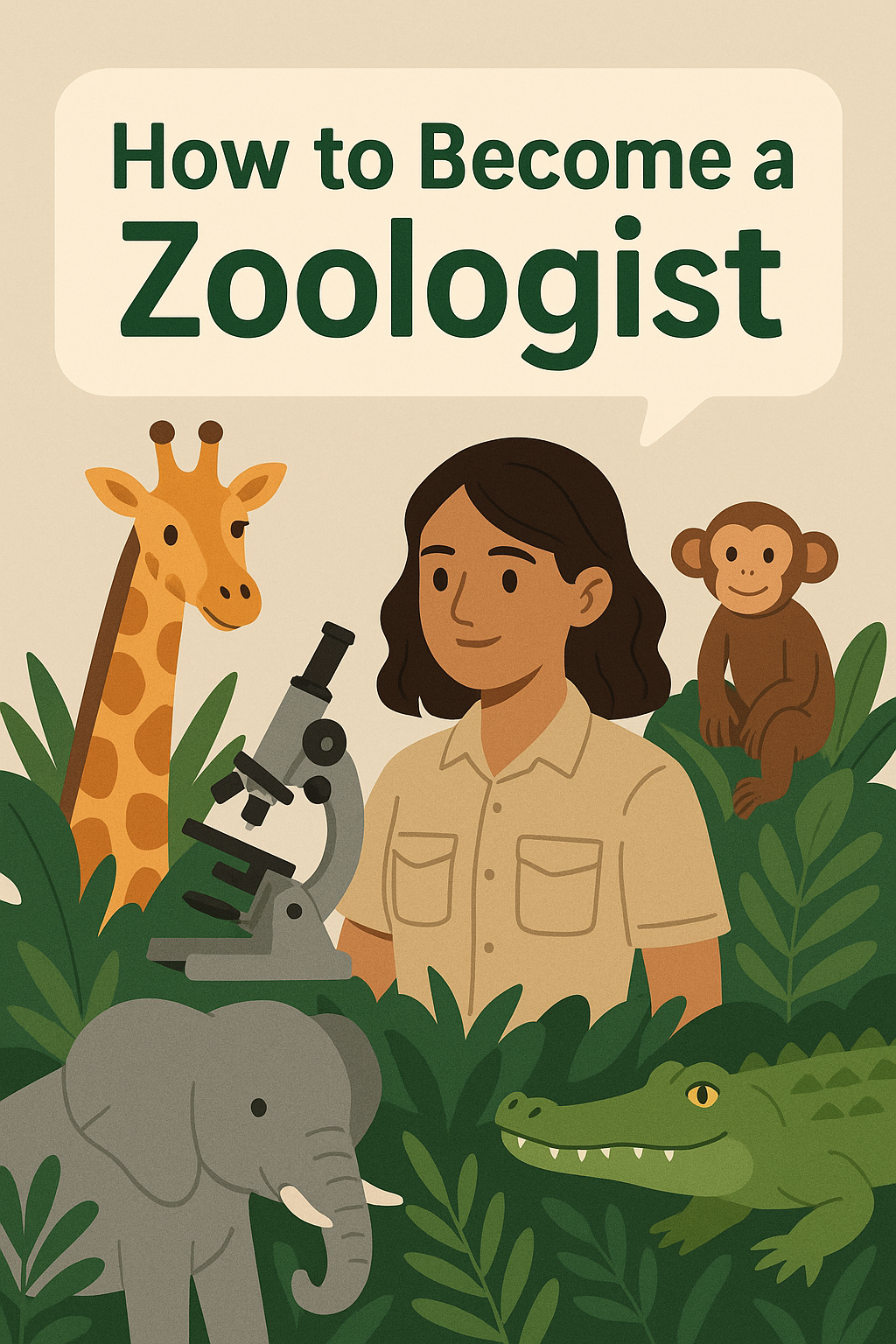How to Become an Entomologist

Insects are some of the most diverse and fascinating creatures on Earth, playing crucial roles in ecosystems, agriculture, and even human health. Entomologists are scientists who dedicate their careers to studying insects, their behaviors, environments, and their impact on the world. Becoming an entomologist requires more than just a passion for bugs — it involves earning specialized education, gaining hands-on field and lab experience, and developing strong research skills. Entomologists can work in a variety of fields, from agriculture and public health to environmental conservation and forensic science. If you are curious about the insect world and want to make a meaningful contribution to science, pursuing a career in entomology could be a rewarding and exciting journey.
Understand the Field of Entomology
Before diving into this career, it’s important to understand what being an entomologist involves. Entomologists study insects’ biology, behavior, genetics, and their impact on the environment. Some work in research, exploring how insects contribute to ecosystems, while others focus on applied fields like pest control, agriculture, or public health. Whether you are fascinated by bees, butterflies, or beetles, there’s a wide variety of niches to explore in entomology.
Additionally, entomologists may work in labs, universities, museums, government agencies, or out in the field. Depending on your specialty, your daily work could involve anything from collecting insect samples in rainforests to analyzing genetic material under a microscope.
Earn a Bachelor’s Degree
Starting with a strong educational foundation is key. Most aspiring entomologists begin by earning a bachelor’s degree in biology, zoology, environmental science, or a related field. Some universities offer specific courses or minors in entomology, which can give you a head start.
Undergraduate coursework often includes:
- General biology and chemistry
- Ecology and environmental science
- Genetics and molecular biology
- Zoology and animal physiology
Getting lab experience during your undergraduate years is highly recommended. Many students volunteer in research labs, assist in insect surveys, or complete internships related to entomology. These early experiences are crucial for building practical skills and making professional connections.
Pursue a Master’s Degree (Optional but Beneficial)
While it’s possible to find entry-level positions with a bachelor’s degree, pursuing a master’s degree can significantly expand your career options. A master’s program allows you to specialize in a particular branch of entomology such as medical entomology, forensic entomology, agricultural entomology, or taxonomy.
During your master’s studies, you’ll likely conduct original research, work closely with professors, and build a deeper knowledge base. You’ll also get the chance to publish scientific papers, which can greatly improve your job prospects later on.
Obtain a Ph.D. for Research or Academic Careers
If your goal is to work in academia, advanced research, or high-level governmental roles, obtaining a Ph.D. is essential. Ph.D. programs in entomology are research-intensive and focus on developing new scientific knowledge.
Students in doctoral programs:
- Conduct original research on specialized insect topics.
- Write and defend a dissertation based on their findings.
- Teach undergraduate courses and mentor younger students.
Ph.D. holders often become university professors, lead research projects, or work for international organizations addressing major ecological or agricultural issues.
Gain Field and Lab Experience
Experience is as important as formal education in entomology. Throughout your academic journey, it’s important to seek out fieldwork and lab opportunities. Hands-on experience helps you develop critical skills like insect collection, specimen preservation, identification, and data analysis.
Short paragraph format:
Participating in summer field studies, museum internships, or assisting with university research projects will expose you to various aspects of entomology. These experiences not only refine your skills but also help you discover which areas of the field you are most passionate about.
Fieldwork often involves physically demanding tasks such as hiking, camping, and collecting specimens in various weather conditions. Being prepared for these challenges is key to success in the field.
Choosing a specialization within entomology helps focus your studies and career trajectory. Here’s a closer look at key areas:
- Agricultural Entomology involves studying insects that affect crops and farming practices. This specialization is crucial for developing pest management strategies to protect agricultural productivity and food security.
- Medical Entomology focuses on insects that impact human health, such as mosquitoes, ticks, and lice. Research in this field helps prevent the spread of diseases like malaria and Lyme disease.
- Forensic Entomology applies insect science to legal investigations, particularly in determining the time of death in criminal cases by studying the insects found on decomposing bodies.
- Systematic Entomology is concerned with the classification and identification of insect species, contributing to the understanding of insect biodiversity and evolutionary relationships.
- Ecological Entomology examines the roles insects play within ecosystems, studying how they interact with plants, animals, and their environment.
Selecting one of these areas allows you to focus your education and research to suit your interests and career goals.
Develop Key Skills
While technical knowledge is essential, certain soft skills are equally important for success as an entomologist.
Key skills include:
- Attention to detail for identifying small insect differences.
- Critical thinking and problem-solving.
- Strong written and verbal communication for publishing research.
- Physical stamina for fieldwork activities.
- Data analysis skills, often including familiarity with statistical software.
Building these skills early will not only help you during your education but will also make you a strong candidate for future employment opportunities.
Obtain Necessary Certifications
Depending on your career focus within entomology, you may need specific certifications to enhance your qualifications. For instance, if you’re interested in pest control or working with agricultural pests, most states require pest control specialists to obtain state licensure. These certifications often involve passing exams that demonstrate your knowledge of pest management and safety protocols.
Additionally, for entomologists working in laboratory settings, certifications in lab safety, such as handling hazardous materials or operating specific equipment, may be necessary. It’s essential to research the certification requirements specific to your field of interest to ensure you meet all necessary standards. Obtaining and maintaining certifications not only keeps you competitive in the job market but also opens up opportunities for advanced roles and specialized work.
Build a Professional Network
Networking is an important part of advancing your career in entomology. Attending scientific conferences, participating in workshops, and joining professional organizations like the Entomological Society of America (ESA) are excellent ways to meet experienced researchers and potential employers.
Points for networking tips:
- Attend local and international entomology conferences.
- Join professional organizations like the ESA or regional insect societies.
- Participate in online forums and discussion groups related to entomology.
- Seek mentorship opportunities from university professors or researchers.
A strong network can help you learn about job openings, research collaborations, and funding opportunities you might otherwise miss.
Explore Career Opportunities
Once you’ve built your education and gained experience, it’s time to explore job options. Entomologists work in a variety of fields including:
- Academic research and teaching at universities.
- Government agencies like the USDA or CDC.
- Private agricultural companies focusing on pest management.
- Environmental organizations studying biodiversity and conservation.
- Museums or zoos as insect curators or educators.
Short paragraph format:
The job outlook for entomologists remains stable, with growing interest in areas like environmental conservation, climate change research, and sustainable agriculture. Being flexible and open to a variety of roles can help you find your ideal position.
Stay Committed to Lifelong Learning
Entomology, like all sciences, is constantly evolving. New discoveries about insect behavior, genetics, and ecosystems are made every year. Staying updated with current research, attending continuing education courses, and reading scientific journals ensures that your knowledge remains relevant.
Many successful entomologists continue to collaborate on research projects, attend international conferences, and contribute to scholarly articles long after they finish formal education. Lifelong learning keeps your career exciting and impactful.
Final Thoughts
Becoming an entomologist requires passion, curiosity, and dedication. It’s a career that allows you to dive deep into the natural world, contribute to important scientific discoveries, and sometimes even help solve global challenges like food security and disease control. With a strong educational background, hands-on experience, networking, and continuous learning, you can build a rewarding career studying the world’s most diverse group of creatures.









